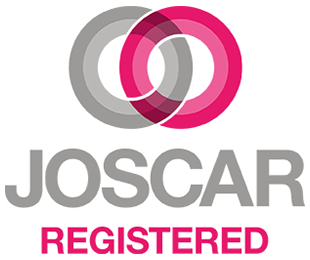Covid-19 has driven a completely new way of working for almost everyone, with an increase in remote working at the top of this list of changes.
Within companies, internet-based meetings, updates and conversations have proliferated, requiring individuals and teams to adapt quickly to new methods of working.
In B2B relations, the inability to meet up with clients and customers face to face has led to an unprecedented reliance on video conferencing in order to establish and maintain vital business relationships.
This sizeable disconnect from the working methods that had previously developed over a number of years – albeit at a rapid pace – carries potentially dramatic implications for issues of trust, reliability and clarity in business relationships.
Firstly, every company needs to know that its partners are doing everything they can to look after its best interests, and communication is a vital part of this dynamic.
Furthermore, when it comes to the timely and efficient delivery of projects, all stakeholders need to be assured that the systems and procedures in place are sufficient to overcome any gaps that remote working might possibly open up.
Five steps to remote project management
In 2018, the APM Group published a white paper entitled, 5 Steps to Successfully Managing a Project Remotely, which set out several broad tenets to achieving the eponymous aim.
1. Practice communication excellence
2. Be flexible in your working time
3. Have more meetings
4. Have multiple designated work areas
5. Conduct an awesome project kick-off.
These points, raised with the best intentions pre-pandemic, are still generally applicable. However, with the benefit of hindsight after the past year and a half, they can be subtly, but importantly, updated to be more even helpful in the constantly changing business landscape.
Xpertex has been developing its business engagement skills and methods throughout the Covid-19 crisis, successfully delivering projects both internally and, critically, for its customers.
Here are Xpertex’ additions to these top tips for successful remote project management:
1. Practice communication excellence using collaboration tools like MS Teams, SharePoint, Slack, Jira and/or Confluence.
It is vital that remote workers collaborate seamlessly with colleagues and clients in order to maintain productivity. These days, trying to make do using email, the odd to-do list and video conferencing alone just doesn’t cut it.
Team members working remotely need the functionality of integrated project management tools, such as those mentioned above, which incorporate features such as instant messaging, video calls, screen sharing and time tracking.
Enabling your teams to easily prioritise tasks, adjust workflows and access instant reports could make the difference between your business working like a well-oiled machine or one that has been dismantled and put back together in the wrong order.
2. Be flexible. Full stop.
If there is one word that typifies the emerging business mentality shaped by the pandemic, it is ‘flexibility’. Organisations of all sizes and in every sector have had to be flexible in all areas of their operations – from supply chains to payments, client liaison to staff working arrangements.
In 2021, not only do you have to service clients to a timeline that suits their changing needs, this supple approach must also carry through every department of your own business if you are to lead the way for your clients and your teams alike.
Remember that a little flexibility can go a long way when it comes to delivering projects on time and to everybody’s satisfaction.
3. Have more effective and efficient meetings using collaboration tools as an aid.
Yes, it is important to maintain constant flow of communication – again, both within and with others outside your business – but remember, it is quality that matters, not just quantity.
Keep meetings brief and to the point by setting tight agendas and sharing these beforehand so all parties know what is expected of them in advance.
Collaborative digital tools can provide a focus for all stakeholders when it comes to clarifications, presentations, updates, sharing information and ensuring knowledge is passed on clearly to those who need to know.
4. Have multiple designated work areas using appropriate collaboration tools
Variety is the spice of life, so encourage those in your newly flexible organisation to take a similar approach to their working arrangements.
Remote workers, previously used to their daily commute or longer business trips, may be spending long periods within the same four walls. Establishing more than one work environment could be just what they need to keep them fresh and engaged.
5. Conduct an awesome project kick-off followed up with effective daily stand-ups and regular retrospective reviews.
An inclusive and impressive launch may get your project off to a flying start, but then the work must begin to keep it up in the air, so it is crucial to find ways to energise your team on a regular basis.
The key to this is not to see your project simply in terms of a kick-off, half-time and final whistle. All players must remain engaged throughout and provided with frequent time-outs to be coached, assess how the game is going and how they are performing, and vitally, to correct and learn from any mistakes.
Xpertex has been designing, delivering and supporting secure IT solutions since 2006. Its team of technical delivery experts provided these services and solutions before the pandemic and has continued to do so throughout its duration thanks to an effective toolkit that enables it to succeed on any customer engagement.
If you have an IT risk that needs managing or tolerating, a worry about your cyber-security posture or an IT project that could benefit from our experts to help your company succeed, call +44 2030 210 749




